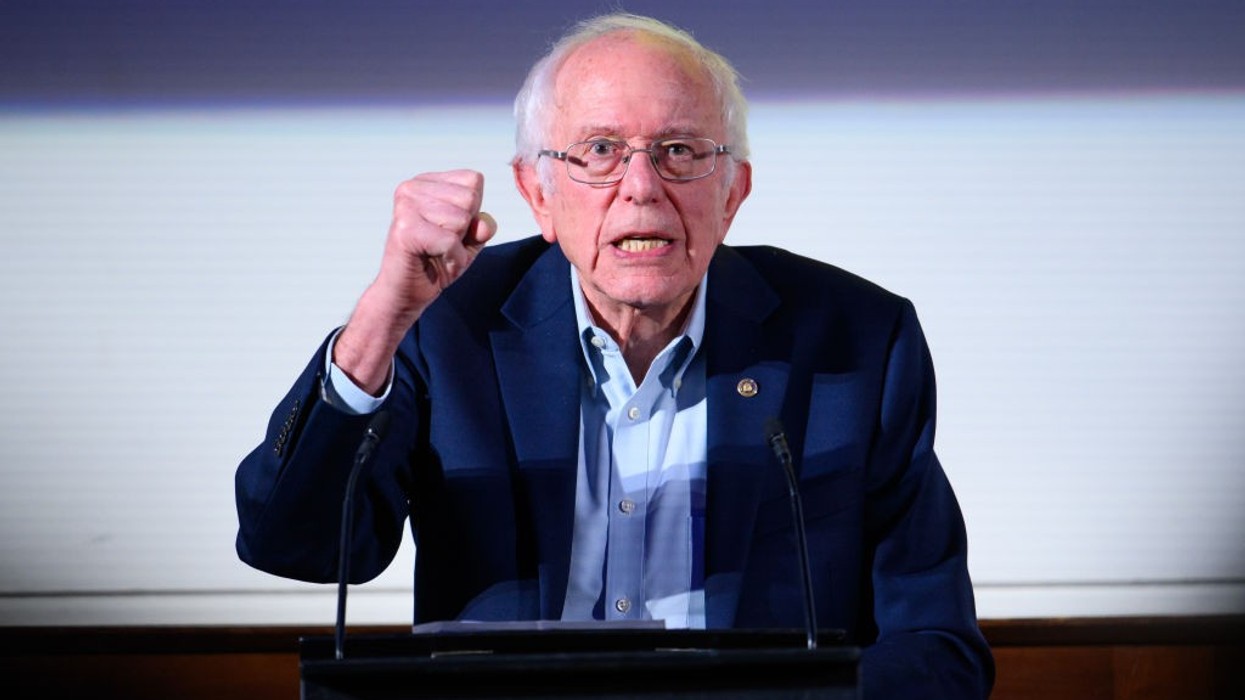December, 04 2015, 12:45pm EDT

Sierra Club Launches Ad Campaign to Push Congress to Protect American Jobs and Extend Clean Energy Incentives
WASHINGTON
The Sierra Club announced a new advertising campaign today to pressure Congress to extend clean energy incentives that have helped create more than 200,000 jobs over the past decade. These incentives are currently being negotiated as part of a broad tax credit extenders package likely to be voted on before Congress adjourns for its holiday recess.
"This is Congress' chance to protect more than 200,000 jobs and build a stronger economy," said Melinda Pierce, Sierra Club's Legislative Director. "These clean energy incentives have been a boon to many American workers across the country and extending them will not only protect their jobs, but create thousands more."
The ad campaign includes print and digital advertisements running in Washington publications until the end of next week.
"The American people are counting on Congress to protect their jobs and grow the clean energy economy," Pierce said. "Congress should not leave town without passing these essential incentives."
The Sierra Club is the most enduring and influential grassroots environmental organization in the United States. We amplify the power of our 3.8 million members and supporters to defend everyone's right to a healthy world.
(415) 977-5500LATEST NEWS
Holiday Season Ultimatum From Amazon Workers: Bargain or We Strike!
"If Amazon chooses to ignore us, they’re the ones ruining Christmas for millions of families. We’re not just fighting for a contract; we’re fighting for the future of worker power at Amazon and beyond."
Dec 14, 2024
Workers at a Amazon warehouse and delivery center in New York announced approval of strike authorizations on Friday, giving the retail giant—who have refused to negotiate for months—until Sunday to come to the bargaining table or risk a major work stoppage at the height of the holiday shopping season.
The unions representing Amazon workers at two New York City facilities—the JFK8 warehouse on Staten Island and the DBK4 delivery center in Queens—cited the company's "illegal refusal to recognize their union and negotiate a contract" to address low wages and dangerous working conditions as the reason for the strike authorization.
"We just want what everyone else in America wants—to do our jobs and get paid enough to take care of ourselves and our families. And Amazon isn't letting us do that."
"Amazon is pushing its workers closer to the picket line by failing to show them the respect they have earned," said Teamsters General President Sean M. O’Brien in a statement. "We've been clear: Amazon has until December 15 to come to the table and bargain for a contract. If these white-collar criminals want to keep breaking the law, they better get ready for a fight."
The workers are demanding:
- A living wage with fair pay increases.
- Safer working conditions to prevent injuries and fatalities.
- Job security and protection from arbitrary firings.
- Dignity and respect for all employees.
In June, over 5,500 workers at JFK8—who first voted in favor of creating a union in 2022—joined the Teamsters and chartered the Amazon Labor Union (ALU)-IBT Local 1. Despite consolidating their organizing strength with the backing of the Teamsters, Amazon management has dragged their feet on bargaining a first contract, hardly surprising given the company's long-standing hostility to organized labor.
"Amazon's refusal to negotiate is a direct attack on our rights," said Connor Spence, president of ALU-IBT Local 1, on Friday. "If Amazon chooses to ignore us, they’re the ones ruining Christmas for millions of families. We’re not just fighting for a contract; we’re fighting for the future of worker power at Amazon and beyond."
Rank-and-file members said their demands are reasonable, especially as the company—owned by the world's second-richest man, Jeff Bezos—continues to rake in massive profits year after year as one of the world's largest companies.
"We aren't asking for much," said James Saccardo, a worker at JFK8. "We just want what everyone else in America wants—to do our jobs and get paid enough to take care of ourselves and our families. And Amazon isn't letting us do that."
In Queens, where Amazon workers at DBK4—the corporation's largest delivery station in the city—voted nearly unanimously to authorize a strike of their own.
"Driving for Amazon is tough," said Luc Rene, a driver who works out of DBK4. "What's even tougher is fighting a mega-corporation that constantly breaks the law and games the system. But we won't give up."
"Every horror story you read about Amazon is true, but worse," said Justine, a warehouse worker in New York in a video produced by More Perfect Union.
BREAKING: Amazon workers in NYC are going on strike right before Christmas — the company's busiest time.
The first unionized Amazon warehouse is going to shut down in a historic walkout.
Workers plan to hit the company where it hurts to win their first union contract. pic.twitter.com/CwnrRWg4be
— More Perfect Union (@MorePerfectUS) December 13, 2024
A strike at this time of year, the busiest for the retail giant, reports labor correspondent Jessica Burbank for Drop Site News, "would hit them where it hurts. The scale of the strike would be unprecedented, including the major hubs of New York and San Bernadino, California."
According to Burbank:
Amazon now has a workforce of over 700,000, making it the largest employer of warehouse workers in the nation. If a contract is won at these initial 20 bargaining units, it has the potential to impact working conditions for thousands of workers, and inspire union organizing efforts at Amazon facilities across the country.
For Amazon workers who voted to unionize their warehouses in March of 2022, this has been a long time coming. “Thousands of Amazon workers courageously cast their ballots to form a union at JFK8 in Staten Island,” Smalls said in a text. “We shocked the world, we had won against a corporate giant and hoped that step would propel us forward to help create a better workplace.” For years, Amazon stalled on recognizing the union, and has not yet met union representatives at the negotiating table.
Smalls said, “I’m excited to see workers take control, take the next step and move even further down the path to victory when they exercise their right to strike.” He continued, “We celebrated as we inspired thousands of others to hope for the same.”
Sen. Bernie Sanders (I-Vt.) on Saturday issued his support for the union workers.
"Amazon delivery drivers and warehouse workers deserve decent wages, benefits and working conditions—and the right to form a union," said Sanders. "I strongly support the thousands of Amazon workers who will go on strike tomorrow if Amazon doesn't end its illegal union busting."
The workers at JFK8 said people could support the union's effort in various ways "at this critical time," including:
- Donate to the Solidarity Fund: Help workers sustain their fight by contributing to the strike fund.
- Show Up on the Picket Line: Join workers at JFK8 to demonstrate solidarity and hold Amazon accountable for their illegal refusal to negotiate a union contract.
- Spread the Word: Use social media and local networks to raise awareness about the workers’ struggle and the importance of their fight for justice at Amazon.
- Contact Elected Officials: Urge representatives to publicly support JFK8 workers and pressure Amazon to negotiate in good faith.
- Sign the Petition: Stand with Amazon workers and demand that Amazon guarantee a safe return to work, free of harassment and retaliatory disciplinary action, to all workers participating in protected collective action.
For his part, former labor secretary and economist Robert Reich said he had no sympathy for the retail giant's refusal to bargain in good faith with the workers who make its business model possible.
"Amazon had $15 billion in profits last quarter," said Reich. "Don't tell me they can't afford to bargain a fair contract."
Keep ReadingShow Less
Bernie Sanders Says Defeating Oligarchy Now Most Urgent Issue
"My friends, you don’t have to be a PhD in political science to understand that this is not democracy. This is not one person, one vote. This is not all of us coming together to decide our future. This is oligarchy."
Dec 14, 2024
Sen. Bernie Sanders of Vermont is escalating his fight against the U.S. oligarchy with a new campaign directed at the nation's wealthiest individuals—including Elon Musk, Jeff Bezos, and Mark Zuckerberg—who he says are key culprits in a global race to the bottom that is stripping people worldwide of political agency while impoverishing billions so that the rich can amass increasingly obscene levels of wealth.
Announcing a new series that will detail how "billionaire oligarchs" in the U.S. "manipulate the global economy, purchase our elections, avoid paying taxes, and increasingly control our government," Sanders said in a Friday night video address that it makes him laugh when mainstream pundits talk openly about the nefarious oligarchic structures in other places, but refuse to acknowledge the issue in domestic terms.
"Strangely enough, the term 'oligarchy' is very rarely used to describe what's happening in the United States or in fact, what's happening around the world," said Sanders. "But guess what? Oligarchy is a global phenomenon, and it is headquartered right here in the United States."
Bernie Sanders talks about the oligarchy
While rarely discussed in the corporate press or by most elected officials, argues Sanders, the reality is that a "small number of incredibly wealthy billionaires own and control much of the global economy. Period. End of discussion. And increasingly they own and control our government through a corrupt campaign finance system."
Since the the victory of President-elect Donald Trump in November, Sanders has been increasingly outspoken about his frustrations over the failure of the Democratic Party to adequately confront the contradictions presented by a party that purports to represent the interests of the working class yet remains so beholden to corporate interests and the wealthy that lavish it with campaign contributions.
In a missive to supporters last month, Sanders bemoaned how "just 150 billionaire families spent nearly $2 billion to get their candidates elected" in this year's elections, which included giving to both major political parties. Such a reality, he said, must be challenged.
As part of his new effort announced Friday, Sanders' office said the two-time Democratic presidential candidate would be hosting a series of discussions with the leading experts on various topics related to the form and function of U.S. oligarchy and expose the incoming Trump administration's "ties to the billionaire class," including their efforts to further erode democracy, gut regulations, enrich themselves, and undermine the common good.
"In my view," said Sanders, "this issue of oligarchy is the most important issue facing our country and world because it touches on everything else." He said the climate crisis, healthcare, worker protections, and the fight against poverty are all adversely effected by the power of the wealthy elites who control the economy and the political sphere.
"My friends, you don’t have to be a PhD in political science to understand that this is not democracy," he said. "This is not one person, one vote. This is not all of us coming together to decide our future. This is oligarchy."
Keep ReadingShow Less
'Make Polio Great Again': Alarm Over RFK Jr. Lawyer Who Targeted Vaccine
"So if you're wondering if Donald Trump is trying to kill your kids, yes, yes he is," said one critic.
Dec 13, 2024
Public health advocates, federal lawmakers, and other critics responded with alarm to The New York Timesreporting on Friday that an attorney helping Robert F. Kennedy Jr. select officials for the next Trump administration tried to get the U.S. regulators to revoke approval of the polio vaccine in 2022.
"The United States has been a leader in the global fight to eradicate polio, which is poised to become only the second disease in history to be eliminated from the face of the earth after smallpox," said Liza Barrie, Public Citizen's campaign director for global vaccines access. "Undermining polio vaccination efforts now risks reversing decades of progress and unraveling one of the greatest public health achievements of all time."
Public Citizen is among various organizations that have criticized President-elect Donald Trump's choice of Kennedy to lead the Department of Health and Human Services, with the watchdog's co-president, Robert Weissman, saying that "he shouldn't be allowed in the building... let alone be placed in charge of the nation's public health agency."
Although Kennedy's nomination requires Senate confirmation, he is already speaking with candidates for top health positions, with help from Aaron Siri, an attorney who represented RFK Jr. during his own presidential campaign, the Times reported. Siri also represents the Informed Consent Action Network (ICAN) in petitions asking the Food and Drug Administration (FDA) "to withdraw or suspend approval of vaccines not only for polio, but also for hepatitis B."
According to the newspaper:
Mr. Siri is also representing ICAN in petitioning the FDA to "pause distribution" of 13 other vaccines, including combination products that cover tetanus, diphtheria, polio, and hepatitis A, until their makers disclose details about aluminum, an ingredient researchers have associated with a small increase in asthma cases.
Mr. Siri declined to be interviewed, but said all of his petitions were filed on behalf of clients. Katie Miller, a spokeswoman for Mr. Kennedy, said Mr. Siri has been advising Mr. Kennedy but has not discussed his petitions with any of the health nominees. She added, "Mr. Kennedy has long said that he wants transparency in vaccines and to give people choice."
After the article was published, Siri called it a "typical NYT hit piece plainly written by those lacking basic reading and thinking skills," and posted a series of responses on social media. He wrote in part that "ICAN's petition to the FDA seeks to revoke a particular polio vaccine, IPOL, and only for infants and children and only until a proper trial is conducted, because IPOL was licensed in 1990 by Sanofi based on pediatric trials that, according to FDA, reviewed safety for only three days after injection."
The Times pointed out that experts consider placebo-controlled trials that would deny some children polio shots unethical, because "you're substituting a theoretical risk for a real risk," as Dr. Paul A. Offit, a vaccine expert at the Children's Hospital of Philadelphia, explained. "The real risks are the diseases."
Ayman Chit, head of vaccines for North America at Sanofi, told the newspaper that development of the vaccine began in 1977, over 280 million people worldwide have received it, and there have been more than 300 studies, some with up to six months of follow-up.
Trump, who is less than six weeks out from returning to office, has sent mixed messages on vaccines in recent interviews.
Asked about RFK Jr.'s anti-vaccine record during a Time "Person of the Year" interview published Thursday, the president-elect said that "we're going to be able to do very serious testing" and certain vaccines could be made unavailable "if I think it's dangerous."
Trump toldNBC News last weekend: "Hey, look, I'm not against vaccines. The polio vaccine is the greatest thing. If somebody told me to get rid of the polio vaccine, they're going to have to work real hard to convince me. I think vaccines are—certain vaccines—are incredible. But maybe some aren't. And if they aren't, we have to find out."
Both comments generated concern—like the Friday reporting in the Times, which University of Alabama law professor and MSNBC columnist Joyce White Vance called "absolutely terrifying."
She was far from alone. HuffPost senior front page editor Philip Lewis said that "this is just so dangerous and ridiculous" while Zeteo founder Mehdi Hasan declared, "We are so—and I use this word advisedly—fucked."
Ryan Cooper, managing editor at The American Prospect, warned that "they want your kids dead."
Author and musician Mikel Jollett similarly said, "So if you're wondering if Donald Trump is trying to kill your kids, yes, yes he is."
Multiple critics altered Trump's campaign slogan to "Make Polio Great Again."
U.S. Sen. Elizabeth Warren (D-Mass.) responded with a video on social media:
Without naming anyone, Senate Minority Leader Mitch McConnell (R-Ky.), a polio survivor, put out a lengthy statement on Friday.
"The polio vaccine has saved millions of lives and held out the promise of eradicating a terrible disease. Efforts to undermine public confidence in proven cures are not just uninformed—they're dangerous," he said in part. "Anyone seeking the Senate's consent to serve in the incoming administration would do well to steer clear of even the appearance of association with such efforts."
Keep ReadingShow Less
Most Popular


